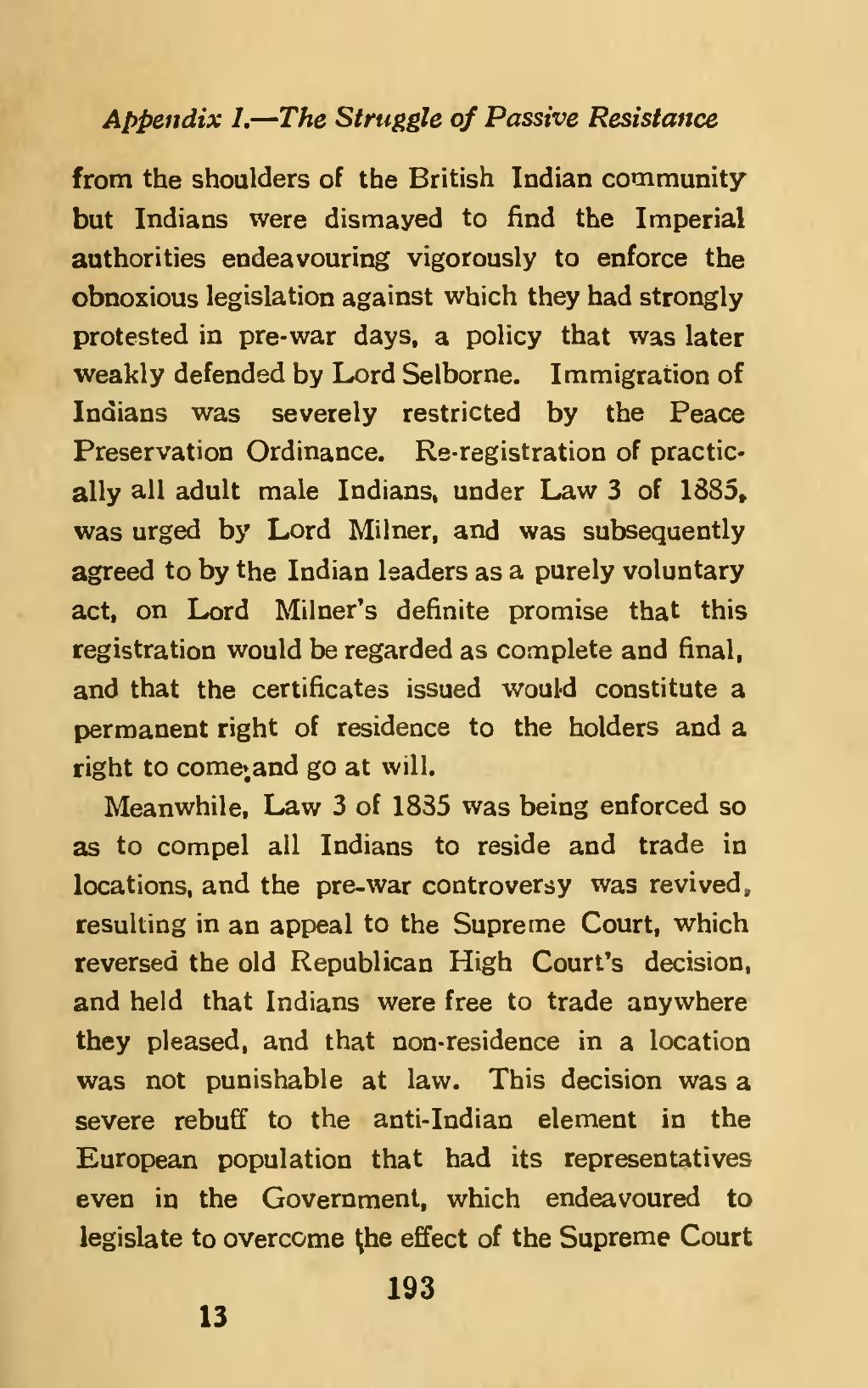Appendix I. — The Struggle of Passive Resistance
from the shoulders of the British Indian community but Indians were dismayed to find the Imperial authorities endeavouring vigorously to enforce the obnoxious legislation against which they had strongly protested in pre-war days, a policy that was later weakly defended by Lord Selborne. Immigration of Indians was severely restricted by the Peace Preservation Ordinance. Re-registration of practically all adult male Indians, under Law 3 of 1885 was urged by Lord Milner, and was subsequently agreed to by the Indian leaders as a purely voluntary act, on Lord Milner's definite promise that this registration would be regarded as complete and final, and that the certificates issued would constitute a permanent right of residence to the holders and a right to come and go at will.
Meanwhile, Law 3 of 1885 was being enforced so as to compel all Indians to reside and trade in locations, and the pre-war controversy was revived, resulting in an appeal to the Supreme Court, which reversed the old Republican High Court's decision, and held that Indians were free to trade anywhere they pleased, and that non-residence in a location was not punishable at law. This decision was a severe rebuff to the anti-Indian element in the European population that had its representatives even in the Government, which endeavoured to legislate to overcome the effect of the Supreme Court
193
